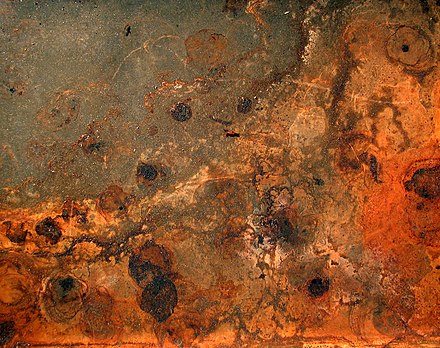corrosion
Corrosion is the spontaneous, gradual disruption (damage, deterioration) of metals or non-metallic organic or inorganic materials (e.g. rock or plastic) due to a chemical, electrochemical or biochemical reaction with the surrounding environment. In a narrower sense, corrosion refers only to metallic materials. The most well-known form of corrosion is rusting.

Corrosion can take place in the atmosphere or other gases, in water and other liquids, soils and various chemical substances that are in contact with the material. This disturbance can manifest itself in various ways, from a change in appearance to a complete breakdown of integrity. The result of corrosion is the loss of material, which results in a decrease in the strength of the given component and deterioration of its properties.
According to the presence of electric current, we can talk about:
Chemical oxidation
Electrochemical oxidation
If an oxide layer forms on the surface of metals, which protects the metal from further corrosion, then we are not talking about corrosion, but about the passivation process (e.g. aluminum).
Chemical corrosion - it is the oxidation of metal, it does not act and does not create an electric current. One of the most important factors that determines whether the resulting layer has a protective character is the ratio VMV / VA < 1, where VMV is the molecular volume of the protective compound and VA is the aform volume of the corroding compound.
